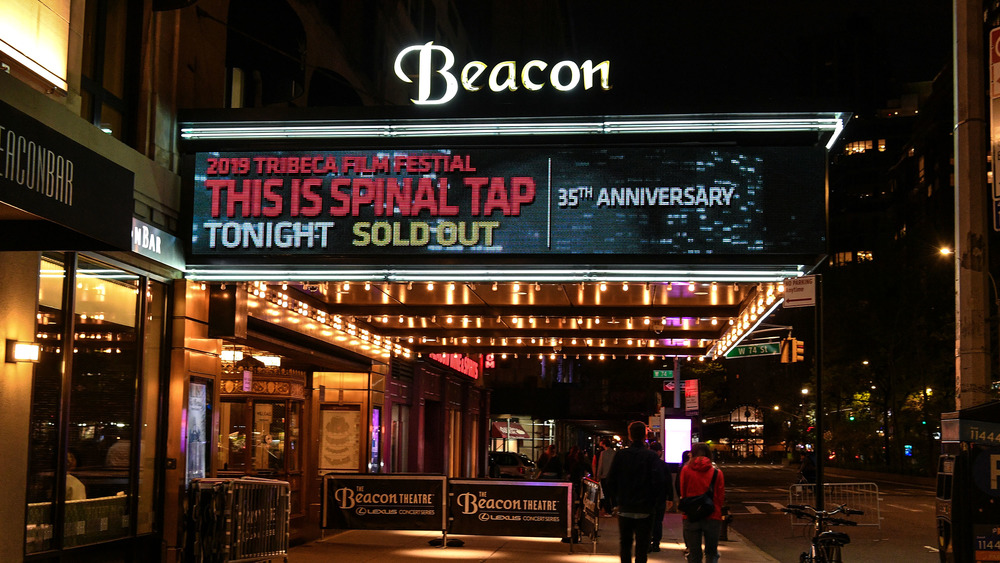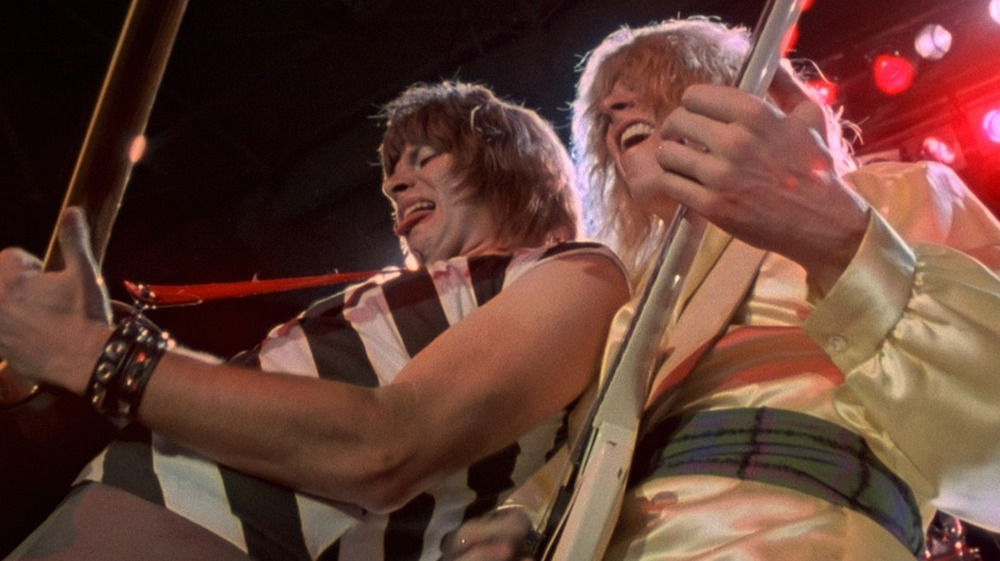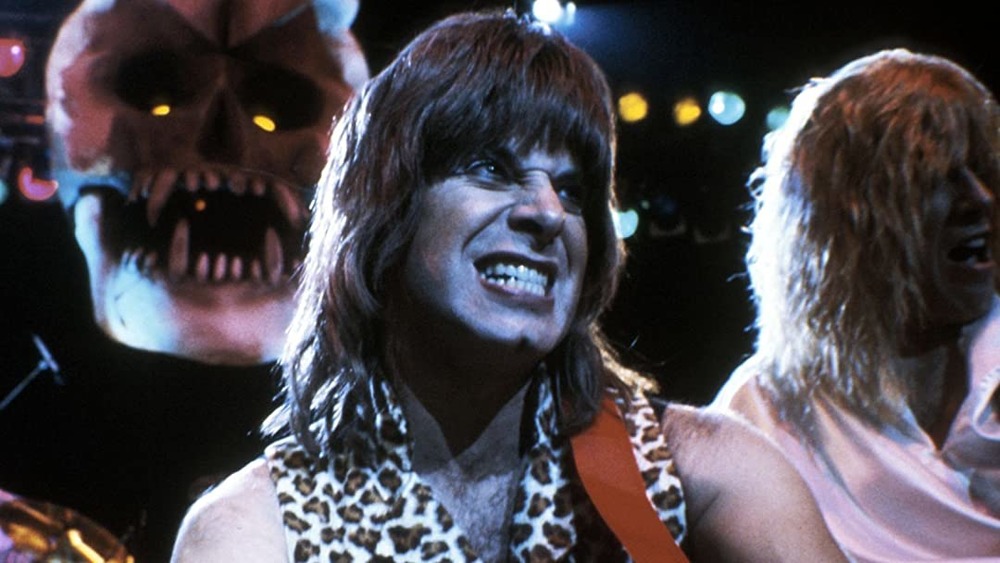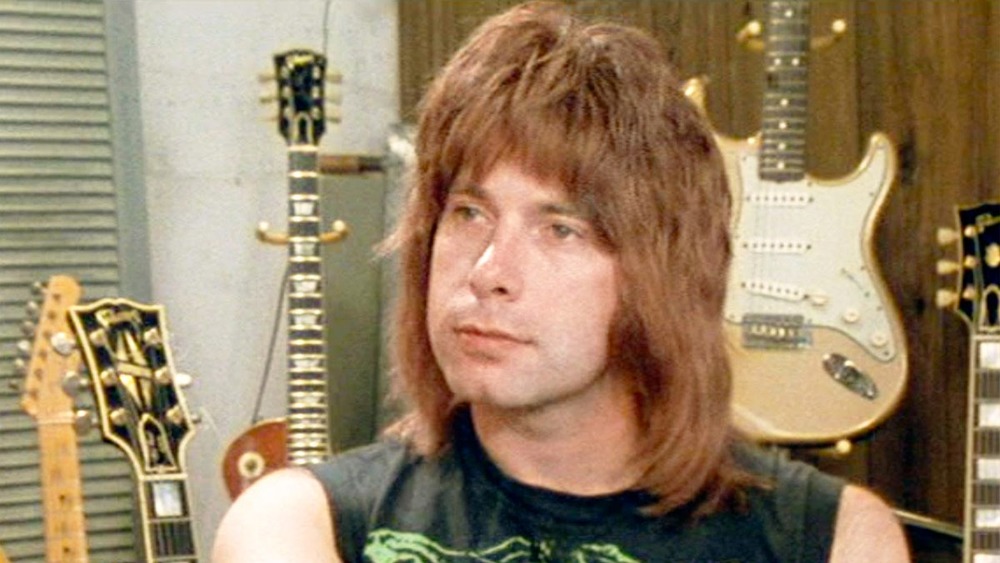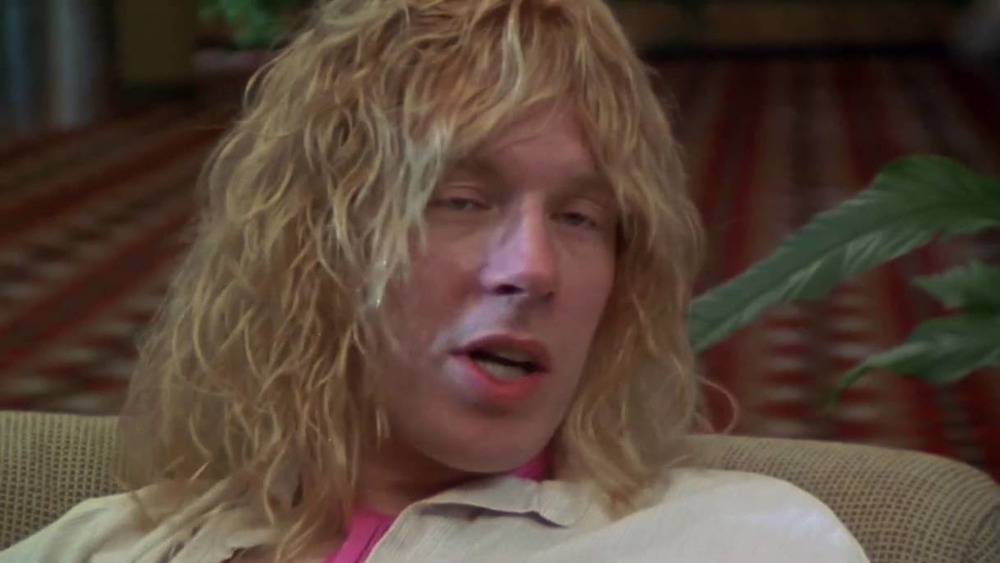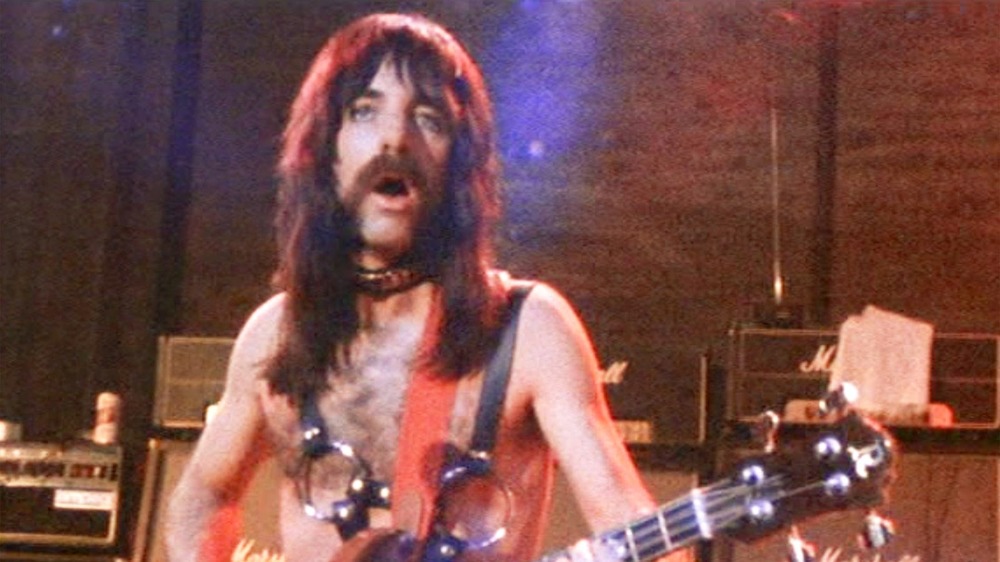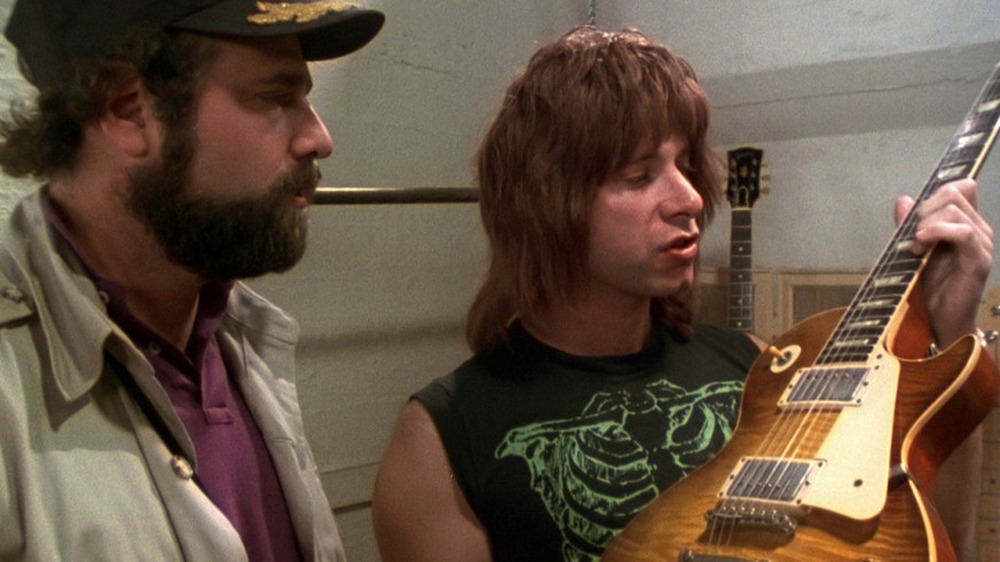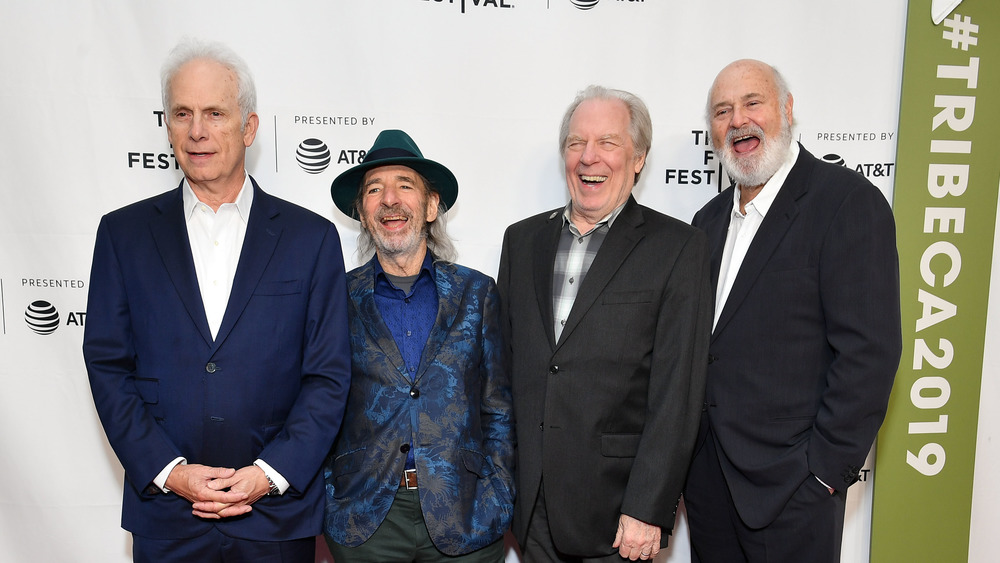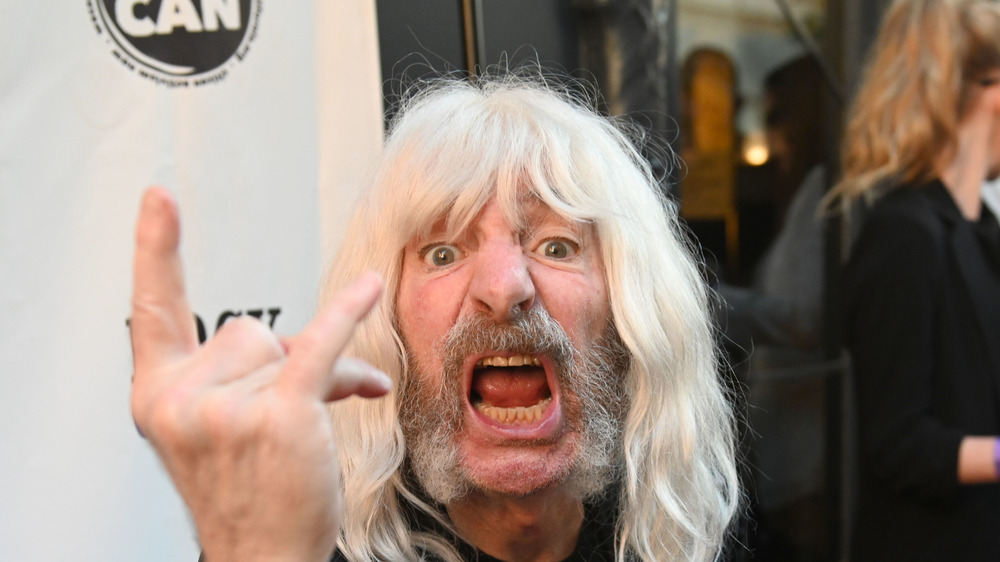Why Spinal Tap Still Holds Up
When This Is Spinal Tap was released on March 2, 1984, it wasn't a big hit at the box office, but it became a major cult phenomenon that grew over the decades. The saga of the faux British heavy metal band is not only one of the best rock 'n' roll movies ever made, but it also helped establish the "mockumentary" genre, paving the way for Borat and The Office.
Spinal Tap was the brainchild of Christopher Guest, and with the team of Harry Shearer (who played bassist Derek Smalls), Michael McKean (who played frontman David St. Hubbins) and director Rob Reiner, they all worked together to make comedy magic that holds up hilariously well today. (It's one of many important films that are in the Library of Congress.)
Spinal Tap would become synonymous with the ridiculousness of heavy metal, and it's surprising that the film wasn't a hit when metal was becoming a popular phenomenon in the '80s. Looking back on it now, the film was both right on time and ahead of its time as well. So why does Spinal Tap still hold up after all these years? Let us count the ways...
Spinal Tap is the most accurate movie about rock 'n' roll ever made
There have been many great rock 'n' roll movies throughout cinema history, but none hit the nail on the head harder than This Is Spinal Tap. It's the most accurate portrait of heavy metal that's ever been committed to film, and it's because Christopher Guest and company really did their homework.
The scene where the band played a gig at an Air Force base was based on an embarrassing real-life concert Uriah Heap had to endure. A number of bands have had trouble finding their way to the stage throughout rock history, and the inspiration for the scene where Tap got lost backstage came from Tom Petty. As Guest recalled, "We saw a tape of Tom Petty playing somewhere in Germany, where's he's walking backstage and a door's opened and he ends up on an indoor tennis court and there's just this moment of stunned, you know, 'Where am I?'"
Funny enough, everyone believed that Black Sabbath inspired the Stonehenge segment of the film, but it turns out this was a funny coincidence. Due to a mistake, Sabbath toured with a ridiculously large 30-foot Stonehenge set in 1983, but Spinal Tap came out in 1982.
Many musicians didn't laugh the first time they saw Spinal Tap because it was too real. "They saw themselves," Rob Reiner said. "I've talked to rockers over the years. They've all seen it ... Sting's seen it like 50 times, and every time, he said, 'I don't know whether to laugh or cry.'"
Spinal Tap's documentary feel makes it seem realistic
This Is Spinal Tap was done without a script. It had a basic outline/story arc that Rob Reiner and company worked from, and the movie was improvised from that foundation. Using what's now known as a "mockumentary" style, it made the film seem more real, and it introduced the public to the genre in the process. As Harry Shearer explained on The Today Show, "Aesthetically, it started a big ball rolling because The Office guys took that mockumentary format, and half the sitcoms on television are using it now."
Spinal Tap was Reiner's first film as a director, and as he explained to Emmy TV Legends, it wasn't the typical experience directing a movie because "it was all improvised and it was shot like a documentary. We were flying by the seat of our pants." The film was also shot in about a month, which contributed to the movie's fast and loose feel.
In fact, the film felt so real that many thought Spinal Tap was a real band and wondered why Reiner wasted his time making a movie about a band that was so terrible, when he could have made a movie about a good band like Led Zeppelin or the Rolling Stones instead.
Spinal Tap has a great combination of outrageous and subtle humor
Not only does This Is Spinal Tap capture the broad strokes of heavy metal well, but it also has many great comedic subtleties and nuances. (One of Rob Reiner's favorite lines from the film is "There's a fine line between clever and stupid," and it epitomized the movie for him.)
As it turns out, Michael McKean and Christopher Guest were honing their characters for a long time before they committed them to film. As Rob Reiner recalled, "Chris and Michael, for years, had been improvising with these characters, these British rock and rollers at parties." After they did a skit for a TV show, Reiner knew that it would make a great film.
The musicians of Spinal Tap are accurate caricatures of metal musicians, but the film also nails the other denizens of the music business, like the managers, the label executives, the promo men, the meddling, Yoko-esque wife who drives a wedge between David and Nigel, and more. (An early cut of the film also had a groupie whose STD travels through several band members on the road.)
As Roger Ebert noted in his review, with a lot of the humor in the film, "they don't go for the obvious gag. There isn't a moment you feel they're going for a cheap laugh. One of the things I liked best about this movie is you had to be smart to watch it. You had to think a little bit to figure out everything that was going on."
The characters had depth, even when they seemed to have none
One of the biggest clichés about metal musicians is that they're not terribly smart or deep, and a lot of times, this can be true, but Christopher Guest, Michael McKean, and Harry Shearer all created deep backstories for their characters, a 17-year fake history that was necessary to make the movie.
As Reiner told the Today Show, because the film was improvised, "The only way we could know in scenes what to reference was to have that common history." Shearer added, "We had to know what our characters had to have known," going all the way back to the beginning of their lives. When Reiner was interviewing the band, Guest and company had no idea what he was going to ask, but because they knew their backstories so well, they could give hilarious answers that didn't feel rehearsed.
Among the band's fake history was the fact that Derek's father made a living disinfecting telephones and that St. Hubbins and Tufnel were childhood friends growing up in the imaginary British town of Squatney, "the south east end of the east end," as McKean quipped. Some of the hilarious fake Spinal Tap album titles that make up their faux discography include Silent But Deadly, Brainhammer, and The Sun Never Sweats.
Spinal Tap is a biting satire, but it's not mean
While a lot of rock musicians were appalled when they first saw This Is Spinal Tap, it's clear when you watch the film that it's not mean-spirited. Other films about heavy metal, like Decline and Fall Part 2, are clearly very condescending to the bands and their fans, but Spinal Tap never stoops to that level.
In fact, after spending enough time with these guys, you really like them and feel for them. You know they're not gonna have the big comeback they're striving for, but you enjoy being with them on their increasingly Quixotic journey regardless.
As Roger Ebert wrote in his review of the film, he felt the movie was appealing because it captured the hilarity of the band, "but [it's] not cruel. [...] It has affection for these three fragile egos. Yes, they're spoiled. Yes, they make impossible demands. [...] Yes, their music is pretty bad. But they're not bad men; they're holy fools, living in a dream that still somehow, barely holds together for them."
Spinal Tap has many classic set pieces that are still hilarious
The Stonehenge disaster. The amps that go to 11. Derek Smalls getting trapped in his pod. The band getting lost trying to find the stage. Nigel Tufnel's wireless guitar picking up radio signals at the Air Force gig. These, and many more, were indelible moments you never forget watching This Is Spinal Tap, and they're still hilarious when you watch the movie today.
Again, Christopher Guest did his homework, taking many true events that happened in rock history and molding them into comedy gold. The Stonehenge segment turns out to be an important plot point because it signals the band finally coming apart, but otherwise, the set pieces in Spinal Tap are hilarious and unforgettable side trips as the band stumbles along on their journey.
And again, it's not just the broad comedy that kills you with these moments — it's how they got the little touches right. As Empire noted in their review of the film, "What makes [Spinal Tap] such a seamlessly hilarious ride is the attention to detail."
The music's still hilarious
Michael McKean, Christopher Guest, and Harry Shearer are all musicians, and they're clearly brilliant at creating musical parody. With songs like "Stonehenge," "Big Bottom," and "Hell Hole," Guest and McKean created hilarious metal with intentionally clumsy musicianship. (With Spinal Tap, you laugh at both the lyrics and the guitar riffs.)
Like a real heavy metal band, some of Tap's songs were built from the actors jamming together as a group, building on foundations of guitar riffs. As McKean told IGN, "Several of the songs in Spinal Tap were written because we all just plugged in and started playing a couple of riffs. The seed came from there, and maybe a funny lyrical notion, and then we pile on."
Guest and McKean would go on to create more hilarious music for Waiting For Guffman ("My Bubba Made a Kishka") and A Mighty Wind, which included the Oscar-nominated song "A Kiss at the End of the Rainbow."
Even with all the changes the music business has been through, Spinal Tap is still relevant
This Is Spinal Tap is nearly 40 years old, and a lot has changed in the music business since it first came out. Yet when you watch it today, the film isn't dated. One of the reasons the movie remains timeless is that today's musicians are still going through the same ridiculous mishaps that Spinal Tap had to endure, and the movie still hits the nail right on the head for many artists.
As an article in NME explained, Blink-182 got lost trying to find the stage several times. Then U2 got trapped inside a big lemon that was part of their stage show. And in a painful repeat of the Stonehenge incident, techno artist Jono Ma wanted to have a gigantic sound system behind him for his stage set, but when it finally arrived for the gig, it was a bunch of tiny hi-fi speakers attached to a plank of wood. "I couldn't help but think to myself that if we had a couple of [little people] dressed up as Rastas dancing around the miniature sound system then the speaker stack might look a little bigger," he said.
Ultimately, you get the impression that as long as music exists, Spinal Tap will remain a relevant, sharply accurate, and hilarious snapshot of the world of rock 'n' roll that people will continue to enjoy for decades to come.
